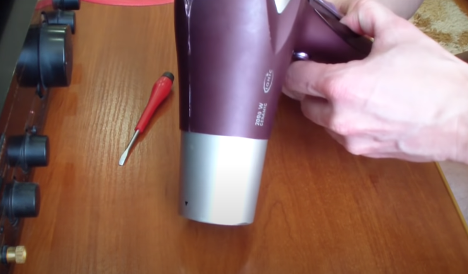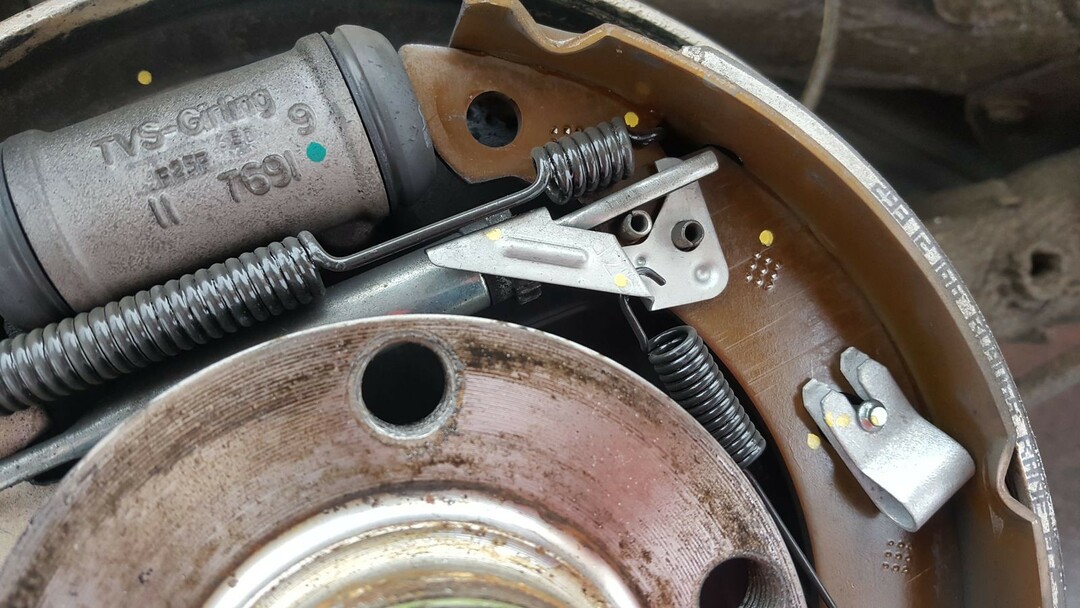Water hammer in a water supply system is a rather rare and dangerous phenomenon. It is associated with a sharp increase or (less often) decrease in pressure, which can result in pipe failure. Why water hammer occurs and how to avoid it is discussed in detail below.
The content of the article
- Definition and consequences of water hammer
- Main causes of water hammer
- Methods of protection against water hammer
Definition and consequences of water hammer
Water hammer in pipes occurs against the background of a sharp jump in water pressure, not only upward, but also downward. Normally, water flows at a certain speed and produces a uniform internal pressure that fluctuates only slightly. But if it increases or decreases sharply, the mechanical effect of the liquid on the pipes increases significantly. This happens literally in a split second, but can lead to very serious consequences.
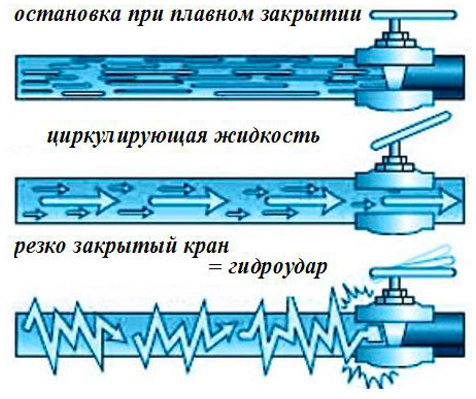
Based on the description, we can say what water hammer is in a heating system. This is a short-term, sharp drop in fluid pressure in a closed system, for example, in a heating circuit. If it increases, the consequences may be as follows:
- pipe damage (may burst or rupture);
- partial violation of tightness, breakage of fasteners;
- breakdown of fitting, pump, fittings.
Water hammer in a heating system can also be associated with a sharp drop in pressure, which is no less dangerous than its increase. In this case, the following consequences are observed:
- deformation, collapse of pipes (only made of plastic);
- ingress of contaminated water;
- formation of air jams.
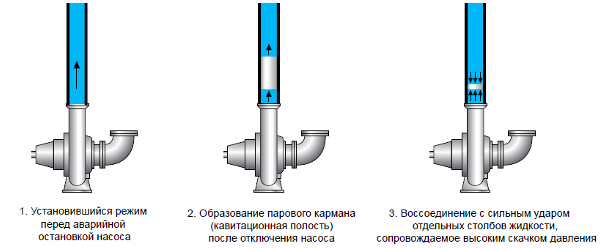
Main causes of water hammer
Water hammer in a steam pipeline or heating system is a fairly rare occurrence if the circuit is correctly installed and working correctly. However, in some cases it occurs even in apartment buildings. This is due to various reasons:
- circulation pump failure;
- a voltage drop, a sudden power outage, which causes a sudden stop in the operation of the equipment, so there is a water hammer in the heating system;
- sudden closing or opening of the shut-off valve;
- large air pockets inside the circuit;
- error in heating installation;
- a sharp change in pipe diameter - when liquid flows from a larger to a smaller conduit, a hydraulic shock may occur in the pipeline.
Methods of protection against water hammer
Unlike multi-apartment buildings, water hammer in the heating system of a private house occurs much more often. The reason is related to both installation errors and improper maintenance of the circuit or lack thereof. Moreover, the consequences can be quite serious, even leading to emergency situations.
To prevent hydraulic shock of the compressor or other elements, it is recommended to observe the following preventive measures:
- The entire system is periodically inspected for leaks, and if leaks are detected, they are immediately repaired. Old pipes are replaced with new ones as necessary.
- Be sure to install shut-off valves (valves). Moreover, to avoid water hammer in the heating system of an apartment building or a private one, it is necessary to carefully open and close the taps so that the pressure does not increase or decrease sharply.
- Perform regular maintenance work - check the air vent, safety valve, pressure gauge, filters. The latter must be cleaned of sand and rust.
- To avoid water hammer in heating networks, you should not install too long sections of the route with sharp turns. They need to be done smoothly, at slight angles.
- Use pipes with a sufficiently large diameter - from 100 mm, i.e. more than 10 cm. If the cross-section is large enough, the water flows evenly, and the risk of water hammer in a private house is minimized.
- Monitor the temperature level and avoid sudden changes. If part of the circuit lies on the street or in the floor or other cold places, this may be one of the reasons why water hammer occurs in the heating system. For prevention, it is important to reinforce the outside of the pipes with insulation.
- You can supply special pipes made of elastic plastic or rubber, which has high elasticity and resistance to heat. This material takes the blow and at the same time withstands it well.
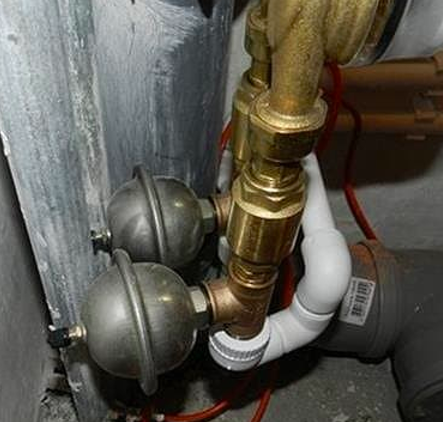
- Finally, there is such an effective measure as the use of dampers and compensators. This is the name for devices that remove part of the water from the general system in the event of a sudden pressure surge. If the heating source is autonomous (own boiler), it is recommended to install a hydraulic accumulator. It also helps eliminate the causes of water hammer.
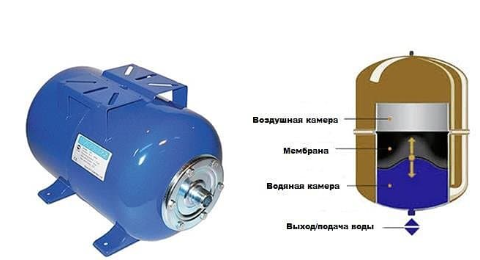
Thus, to prevent water hammer, it is best to use special equipment, for example, a simple compensator. It is mounted on any part of the heating circuit, and the position can be either vertical or horizontal. Only installation in the upper part of the system is excluded in order to prevent stagnation of water at the entrance to the compensator.

